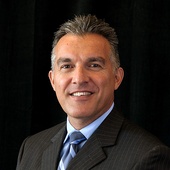Post by Ken Grech, a top Simi Valley real estate agent. Search Simi Valley real estate listings. Wall Street Journal, By Michael R. Crittenden and Marshall Eckblad
U.S. banks posted their sharpest decline in lending since 1942 at the end of last year, suggesting that the industry's continued slide is making it harder for the economy to recover.
While top-tier banks are recovering at a faster clip, the rest of the industry is still suffering, according to a quarterly report from the Federal Deposit Insurance Corp. Banks fighting for survival, especially those plagued by losses on commercial real estate are less willing to extend loans, siphoning credit from businesses and consumers.
Besides registering their biggest full-year decline in total loans outstanding in 67 years, U.S. banks set a number of grim milestones. According to the FDIC, the number of U.S. banks at risk of failing hit a 16-year high at 702. More than 5% of all loans were at least three months past due, the highest level recorded in the 26 years the data have been collected. And the problems are expected to last through 2010.
The struggling U.S. banking industry remains a problem for policy makers eager for banks to lend again. Lawmakers on Capitol Hill and administration officials have pushed banks to lend, particularly in light of the billions in taxpayer aid injected into the financial industry over the past two years. Banking groups and their members counter that they are under pressure from regulators to be more prudent and that demand from struggling consumers and businesses isn't there.
Initiatives such as the Obama administration's $30 billion small-business lending program will rely on banks' making loans at a time when many of those same firms are wrestling with a rising tide of commercial-real-estate problems or being told to add to reserves by regulators.
Some small-business owners say they could expand if they could just get a loan. Nick Sachs, president of Homewatch CareGivers Cincinnati-Metro, says he's been asking banks for a loan of $150,000 to $250,000 since 2008. He says his home-health-care franchise could hire 20 to 30 aides and even one or two office assistants.
After being rejected for a loan by Huntington Bancshares Inc. over a year ago, Mr. Sachs recently re-applied to the Columbus, Ohio, bank. He did so in part because Huntington said in February that it would double its annual small-business lending over the next three years and extend credit to as many as 27,000 more businesses.
To read this full report, please visit www.wsj.com/business.
For any home or lending information, please visit www.simiishome.com.

Comments(0)